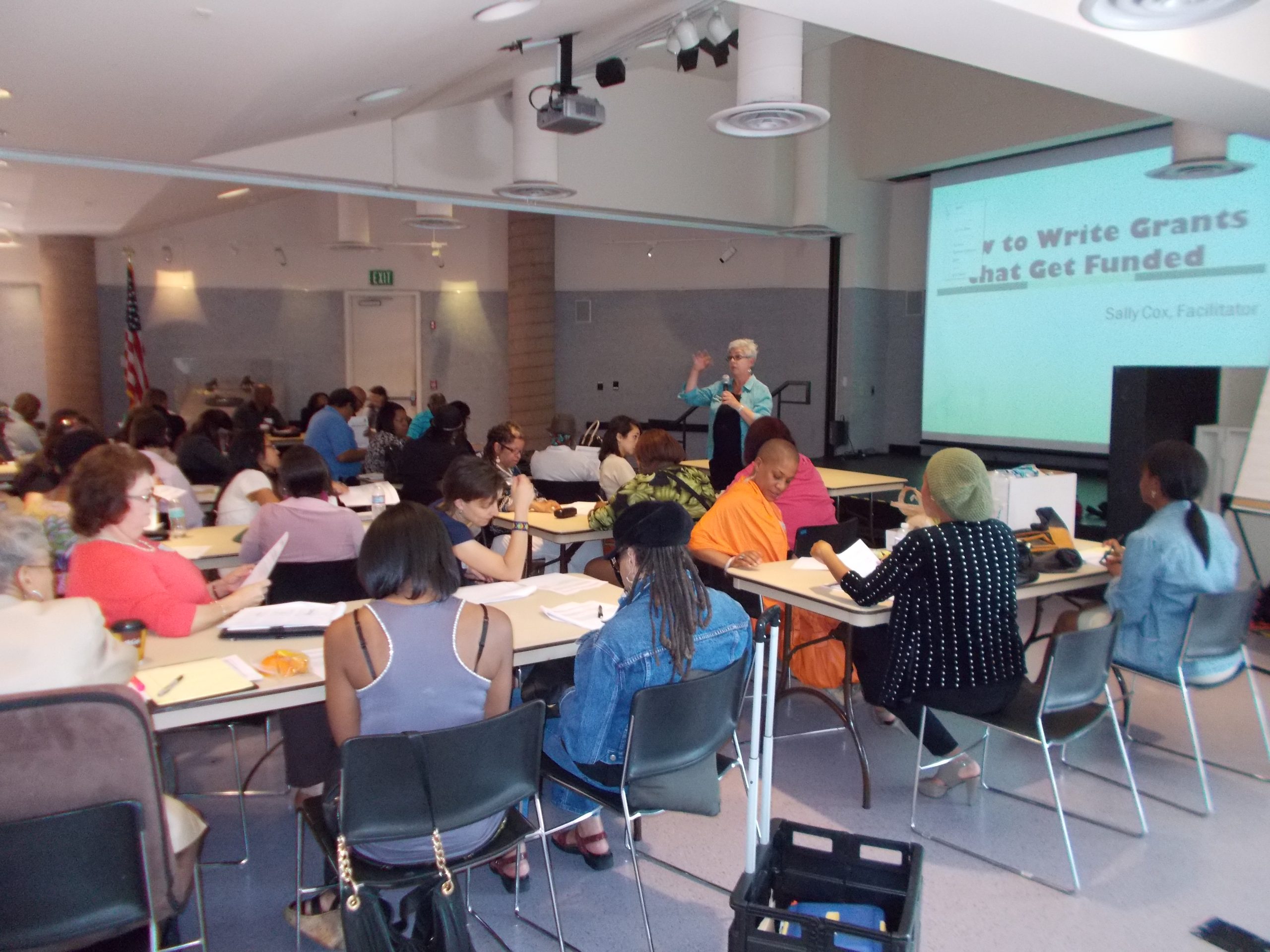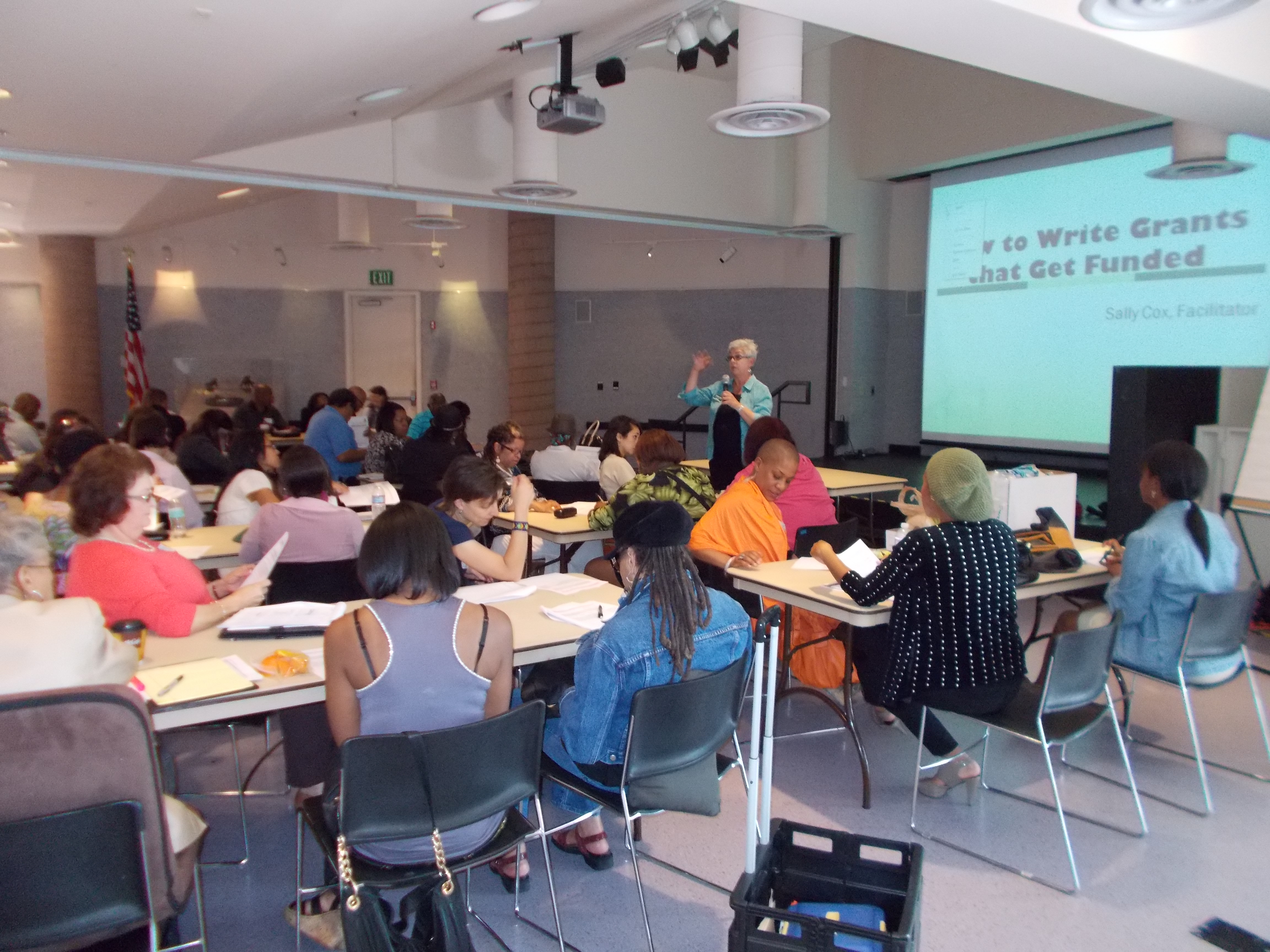
 According to the National Council of Nonprofits, as of 2009, the IRS reported more than 1.1 million nonprofits registered under Section 501(c)(3) and more than 400,000 other types of 501(c) organizations. California has around 40,000. But as prevalent as they are, some nonprofits are struggling to qualify for funding. The County of San Diego, HHSA, along with Central Region HHSA Live Well, San Diego! partnered with UNITY in the Community and Nonprofit Management Solutions to assist nonprofits in Southeastern San Diego in meeting the requirements to gain funding needed to keep their organizations going.
According to the National Council of Nonprofits, as of 2009, the IRS reported more than 1.1 million nonprofits registered under Section 501(c)(3) and more than 400,000 other types of 501(c) organizations. California has around 40,000. But as prevalent as they are, some nonprofits are struggling to qualify for funding. The County of San Diego, HHSA, along with Central Region HHSA Live Well, San Diego! partnered with UNITY in the Community and Nonprofit Management Solutions to assist nonprofits in Southeastern San Diego in meeting the requirements to gain funding needed to keep their organizations going.
The “How to Write Grants that Get Funded,” workshop had all in attendance eager to gain more information about how to become more sustainable. Sally Cox, workshop facilitator, led workshop participants through an extensive journey on the ins and outs of granting writing, and also shared the process from the funder’s perspective, from start to finish. After attending, participants were expected to have learned how to 1.) determine the advantages and disadvantages of grant funding, 2.) identify funders that align with their organization’s needs, and 3.) understand how to tackle each component of a grant proposal.
Workshop attendee, Noel Donahue of GRID Alternatives, a nonprofit solar company for low income communities shared “The workshop was an amazing step by step process. It’s important for us as program staff to have knowledge to assist those who write grants. We can now support the process and understand what they need from us.”
With over 50 people comfortably seated in the Malcolm X Library’s community room, Cox was able to create an intimate environment where participants spoke candidly about their nonprofit needs and what they were looking to further understand. “What I liked most about the workshop was where to find resources, how to structure a grant, the Do’s and Don’ts, and networking opportunities to help with our program. I am very excited about the ongoing grant support that will be provided to us, to support our efforts, and to give us the chance to work together,” shared Curtis Price of ZSL Foundation.
Ms. Zoniece Jones, Unity in the Community member, and president of Pazzaz, Inc., saw the event as a success, sharing “The turnout was excellent. It was kind of surprising, but it exceeded our expectations. It proved that those in our community really want to know how they can put their best foot forward when writing a grant application and highlighting their organization’s successes.” When commenting on the need for these types of workshops in the Southeastern Region, Jones went on to say “The main thing is that often times, we are the last to know about funding opportunities, and rarely, ever, do we have an opportunity to interact with funders. This workshop provided some invaluable information about financial intuitions and foundations about their nonprofit requirements. The goal of UNITY in the Community Southeastern is for our non-profits to have all the tools they need to be successful and sustainable. The first workshop brought together collaborative partners to learn the ‘nuts and bolts’ of the grant process. The second workshop will help build upon that foundation using real grants, so that they are prepared to submit grants that are competitive!”
Ms. Lenore Lowe, executive director of Nonprofit Management Solutions is grateful for the relationship that her organization has established with Unity in the Community. As a 30 year old organization, Nonprofit Management Solutions is a management support organization that focuses on helping nonprofits manage their organizations. Lowe explained how Unity in the Community helps to bring the organizations together through their own collaborative efforts, and that Nonprofit Management Solutions provides the infrastructure, access and lots of trainers. “Our idea was to try and continue to bring resources to Southeast San Diego and continue to promote collaborations.” Lowe shared that while the African American numbers are declining in Southeast San Diego, a core group of individuals and organizations that represent the African American community still exists. “The region is known for its deep relationships,” including its churches and organizations. “We have to be mindful and respectful of this role that the churches and organizations play,” she said, though at times challenging.
For more information on Nonprofit Management Solutions and their workshops, visit them online at www.npsolutions.org


